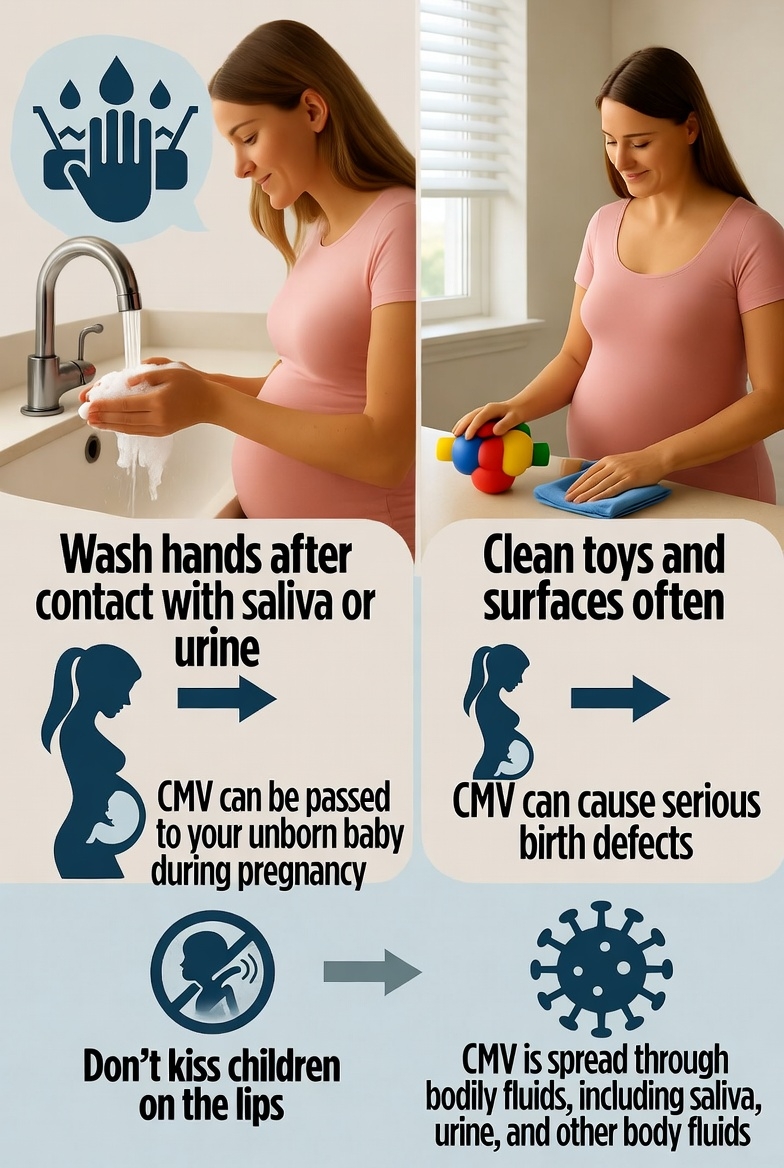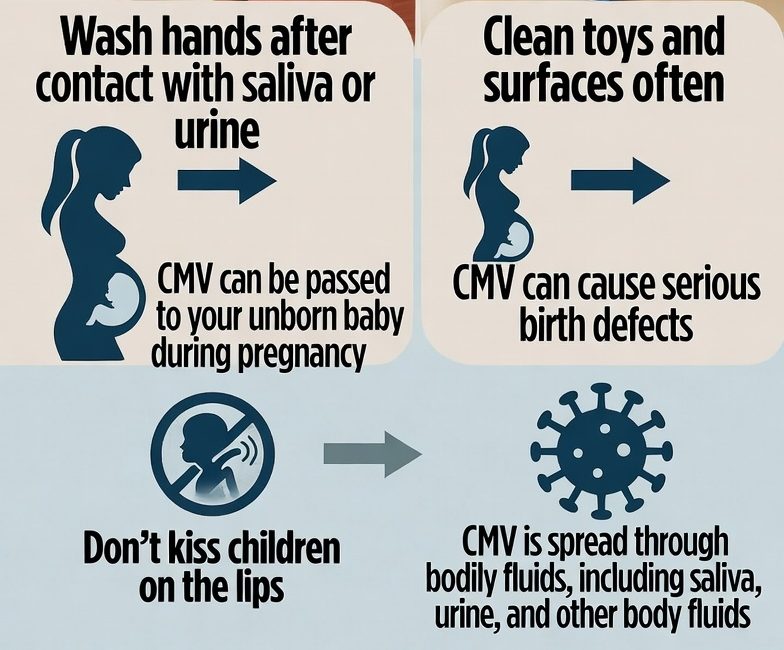Most people have never heard of cytomegalovirus (CMV), yet it’s the most common infectious cause of disabilities in newborns. CMV is a common virus spread through contact with saliva, urine, or other body fluids — particularly from young children.
While infection is often mild or symptom-free in adults, if a woman becomes infected for the first time during pregnancy, there is a risk that the virus can pass to her unborn baby. In some cases, this can cause serious complications such as hearing or vision loss, developmental delay, or cerebral palsy.
How CMV Spreads
CMV can be passed through:
- Saliva or nasal mucous (for example, kissing children on the lips)
- Urine (for example, when changing nappies)
- Breast milk, semen, or vaginal secretions
- Close personal or sexual contact
Because toddlers often carry CMV, exposure most commonly occurs in women who already have young children or work in childcare.
How to Reduce Your Risk
You can lower your chance of catching CMV by making a few small changes to everyday habits:
- Wash hands thoroughly with soap and water for at least 15 seconds after changing nappies, wiping noses, or handling children’s toys
- Avoid kissing children on the lips—a kiss on the head or hug is safer
- Don’t share food, drinks, eating utensils, or toothbrushes with young children
- Clean toys and surfaces that come into contact with saliva or urine using simple detergent and water
- Dispose of used tissues and nappies carefully and wash your hands straight after
These steps are especially important if you’re pregnant or planning a pregnancy.
Diagnosis and Management
Routine CMV screening isn’t recommended for all pregnant women, but testing may be advised if:
- You develop a glandular-fever–like illness in pregnancy, or
- Ultrasound shows unexpected findings in your baby
If CMV infection is confirmed, you’ll be referred to a specialist for the latest management advice. Babies born to mothers with primary CMV infection should also be tested at birth, as early antiviral treatment can improve outcomes.
The Take‑Home Message
CMV is common—and preventable. Practising careful hygiene and avoiding saliva contact with young children are the simplest and most effective ways to protect your baby.
For more information, visit www.cmv.org.au.

Disclaimer
The information on this page is general in nature. All medical and surgical procedures have potential benefits and risks. Consult a healthcare professional for medical advice specific to you.
OMFG!

